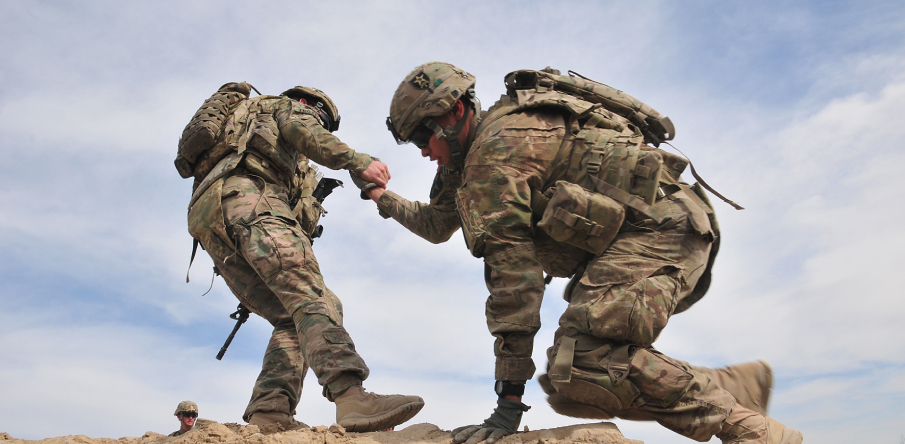A trained and ready army has as its foundation, competent and confident leaders. Such leaders are developed through a dynamic process consisting of three equally important pillars: institutional training, operational assignments, and self-development. This approach is designed to provide the education, training, and experience that enable leaders to develop the necessary skills, knowledge, and attitudes. Carl E. Vuono, General, Chief of Staff of the United States Army identifies the following fundamental expectations:
Demonstrate tactical and technical competence
Know your business. Soldiers expect their leaders to be tactically and technically competent. Soldiers want to follow those leaders who are confident of their own abilities. To be confident a leader must first be competent. Trust between soldiers and their leaders is based on the secure knowledge that the leader is competent.
Teach subordinates
In training, leaders must move beyond managing programs or directing the execution of operations. Our leaders must take the time to share with subordinates the benefit of experience and expertise.
Be a good listener
We must listen with equal attention to our superiors and our subordinates. As leaders we can help solve any problem for a soldier or a unit. However, we can only do so if we know about it. We won’t know about it if we don’t listen.
Treat soldiers with dignity and respect
Leaders must show genuine concern and compassion for the soldiers they lead. It is essential that leaders remain sensitive to family members and include them in unit activities to the extent possible. Remember, respect is a two-way street; a leader will be accorded the same level of respect that he or she shows for others.
Stress basics
Leaders must demonstrate mastery of fundamental soldiering skills such as marksmanship, first aid, and navigation, as well as the requisite skills for their particular specialty, and be able to teach them to their soldiers.
Set the example
Leaders abide consistently with the highest values of the military profession and its institutions. They encourage within their soldiers a commitment to the same values. Leaders take pride in selflessly -dedicating their service to ensure mission accomplishment. They are aware that they are always on parade—24 hours a day, seven days a week—and that all their actions set personal and professional examples for subordinates to emulate.
Set and enforce standards
A leader must know, and always enforce, established Army standards. Perhaps the most fundamental standard which must be maintained is discipline. Our soldiers must promptly and effectively perform their duty in response to orders, or in the absence of orders take the correct action.
Soldiers and units perform difficult tasks, often under dangerous, stressful circumstances. To achieve excellence in these tasks, leaders must explain the importance of the mission, articulate priorities, and focus soldier and unit efforts to perform in an efficient and disciplined manner. Well led, properly trained, motivated, and inspired soldiers will accomplish any mission.
Adapted from Field Manual No. 22-100, Department of the Army Washington, DC, Holdridge






